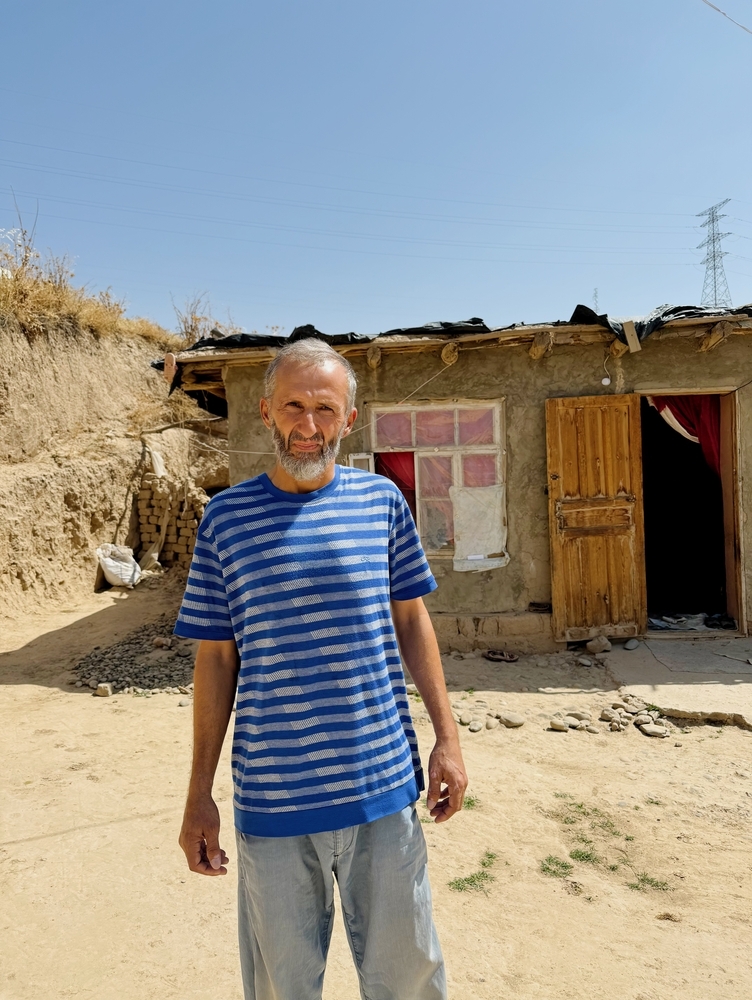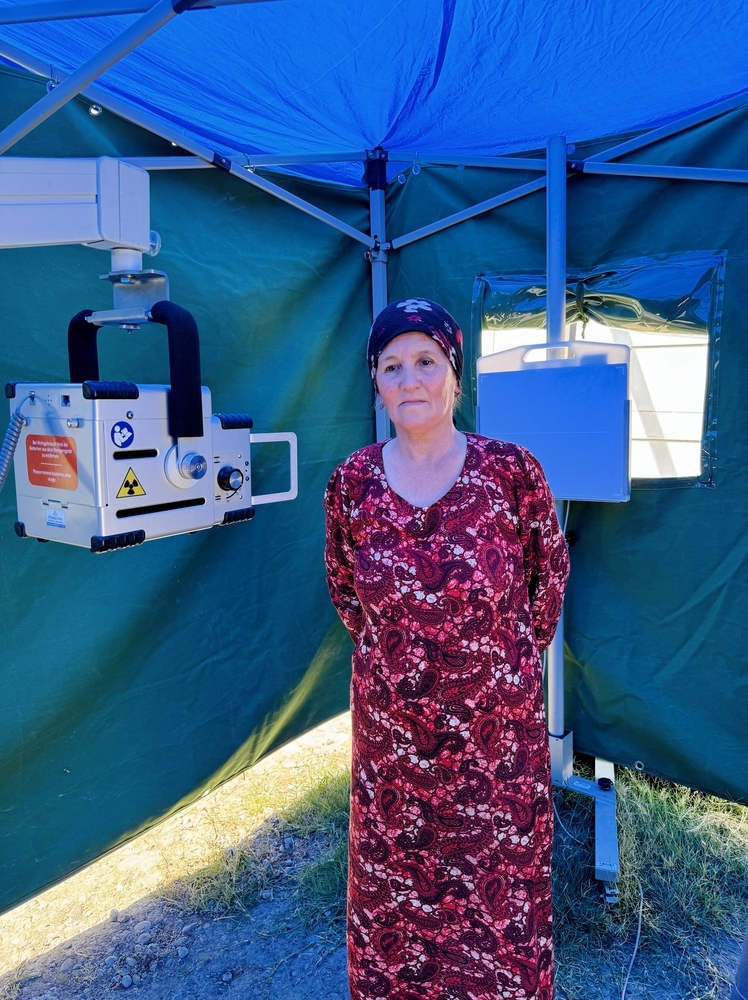Addressing TB involves more than just medication; it starts with conversations. Many people hesitate to begin treatment due to fear or stigma, requiring encouragement from doctors and nurses.
Treating tuberculosis (TB) often starts with more than taking pills — it begins with simple conversations. Some people hesitate to start treatment, held back by fear or stigma, and it takes the right words from healthcare workers to encourage them. Others need support to stay on track with their medication.
“Zero TB” project run by MSF and Tajikistan’s Ministry of Health and Social Protection of the Population (MoHSPP) in Kulob region, southwestern Tajikistan, goes beyond medical care. It offers mental and social support to help people complete their treatment and reclaim their lives.
Pills Instead of Injections
Traditional clay houses sit atop rugged slopes, with narrow paths winding through the hill and distant birdcalls drifting on the wind. Here, in a village in southwestern Tajikistan, life unfolds at a gentle pace. Kholnazar Ghairatov, 51, slowly walks towards MSF’s car, which navigates through the dusty road.
Now greeting medics with a warm handshake, Ghairatov didn’t want to talk to them before. After being diagnosed with TB and hepatitis C, he felt shocked and stressed but later accepted treatment.

Treatment for drug-resistant tuberculosis used to be much harsher, lasting up to two years with injections and severe side effects. Ghairatov avoided that fate: he benefited from a newer programme – SMARRTT (six-month all-oral regimens for rifampicin-resistant tuberculosis treatment). Implemented by MSF and MoHSPP, it offers a shorter treatment with no injections and fewer side effects.
“This treatment has proven to be faster, safer and more effective than previous options, with fewer side effects,” says Dr. Anna-Clara Ivarsson, MSF medical team leader.
Once too weak to walk due to his illness, Ghairatov is now back on his feet, working as an assistant seller at a local market. His 6-year-old son also has TB and has nearly completed his treatment. For Ghairatov, this is further proof that tuberculosis can indeed be cured, despite a popular belief.
“The most important thing is to stick to the regimen: eat, sleep regularly, and take your medication as prescribed,” Ghairatov says. “If you want to get treated, you will recover. Just never give up.”
Instant TB Screening
Sokinamo Khudoiberdieva, 59, arrives at the TB testing site in Kulob. Her first stop is with MSF health promoter Askar Usmonov, who explains the basics of tuberculosis. “We tell people right away that TB is curable and not something inherited,” Usmonov says. Khudoiberdieva, who has been dealing with lung problems, heads to her pre-screening consultation with MSF medics

In Kulob, MSF is enhancing TB detection with cutting-edge digital X-ray technology that uses artificial intelligence. “The system sends X-ray images straight to a doctor’s tablet, allowing us to quickly identify any problems and refer patients to the National Tuberculosis Programme for thorough testing,” explains Dr. Baltasheva. This testing process includes sputum tests, skin tests, and further X-rays to confirm the diagnosis and guide the treatment plan.
“Early detection is crucial,” adds Dr. Ivarsson. “It helps people start treatment sooner, reducing the spread of TB and increasing the chances of recovery. The longer someone carries the disease, the more difficult and prolonged their recovery can be.”
Social and Mental Health Support
It’s a scorching day in Kulob, but the lush greenery around the TB hospital offers a bit of relief. Patients in vibrant national attires gather on benches, chatting and sharing stories, while the leaves rustle softly in the breeze. Nearby, two small containers serve as a space where MSF social workers meet with patients and offer them support.
Among the patients is 6-year-old Sukhrob*, who, along with his mother Zarinai Saidabror, has traveled a long way for care. After Sukhrob’s knee swelled up, Zarinai took him first to a local hospital and then to Dushanbe, the capital, where they learned he had extrapulmonary TB affecting his bones.
To support patients like Sukhrob, MSF covers transportation costs and provides essential food packs.
MSF also offers pre-treatment counseling to encourage patients to start and stick with their treatment. By educating the community, we hope to reduce stigma and increase understanding of the importance of early detection and care for people with TB which would eventually allow to eliminate TB in the area, setting a model for other countries with many TB cases.
For Zarinai, who is raising her four children alone after her husband’s death, this support is vital. “This help with food and transport makes a difference,” Zarinai says. “Since starting the treatment, Sukhrob’s leg is much better, and he can walk properly now.”
* Some names have been changed












